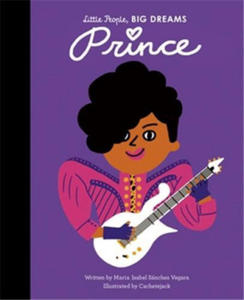krainaksiazek songs that every child should know a selection of the best songs of all nations for young people 26557873
- znaleziono 2 produkty w 2 sklepach
Letter from America Penguin
Powieści i opowiadania
When Alistair Cooke retired in March 2004 and then died a few weeks later, he was acclaimed by many as one of the greatest broadcasters of all time. His Letters from America, which began in 1946 and continued uninterrupted every week until early 2004, kept the world in touch with what was happening in Cooke's wry, liberal and humane style. This selection, made largely by Cooke himself and supplemented by his literary executor, gives us the very best of these legendary broadcasts. Over half have never appeared in print before. It is a remarkable portrait of a continent - and a man. Fred Astaire 26 June 1987 Movie stars don't make it. Nor statesmen. Not Prime Ministers, or dictators unless they die in office. Not even a world-famous rock star, unless he's assassinated. But last Monday, none of the three national television networks hesitated about the story that would lead the evening news. On millions of little screens in this country and I don't doubt in many other countries around the world, the first shots were of an imp, a graceful wraith, a firefly in impeccable white tie and tails. And for much longer than the lead story usually runs, for a full five minutes on NBC, we were given a loving retrospective of the dead man, ending with the firm declaration by Nureyev that 'He was not just the best ballroom dancer, or tap dancer, he was simply the greatest, most imaginative, dancer of our time.' And the newsmen were right to remind us of the immortal comment of the Hollywood mogul, who, with the no-nonsense directness of an expert, reported on Fred Astaire's first film test: 'Has enormous ears, can't act, can't sing, dances a little.' That Hollywood mogul, long gone, spent his life ducking round corners, to avoid being identified as the oaf who looked in the sky and never saw the brightest star. However, that expert opinion was, as the lawyers say, controlling at the time and in Astaire's first movies, there was no thought of allowing him to act or sing. But not for long. And thanks to the invention of television, and the need to fill vast stretches of the afternoon and night with old movies, it has been possible for my daughter, for instance, to claim Fred Astaire as her favourite film star from the evidence of all the movies he made fifteen, ten, five, three years before she was born. When I got the news on Monday evening here, and realized with immediate professional satisfaction that the BBC had smartly on hand a musical obituary tribute to him I put together eight years ago, I couldn't help recalling the casual, comic way this and similar radio obituaries came about. I was in London at the end of 1979, and Richard Rodgers - one of the two or three greatest of American songwriters - had just died, I believe on New Year's Eve or the night before. Britons, by then, were getting accustomed, without pain, to making what used to be a two-day Christmas holiday into a ten-day much-needed rest. For all laborious research purposes, the BBC was shut up. And there was no retrospective programme on the life and music of Richard Rodgers in the BBC's archives. Of course, in a gramophone library that looks like an annex to the Pentagon, there were hundreds, perhaps thousands, of recordings of his songs. The SOS went out to a writer, a producer, and - I presume - a man who had the key to the gramophone library. The silent place was unlocked, and the three of them laboured through the day to put together an hour's tribute to Richard Rodgers. It was done. It was competent enough, but rushed to an impossible deadline. This hasty improvisation happened just when my own music producer and I, who had enjoyed working together for six years or so on American popular music, were wondering what we could offer next. We'd done a sketch history of jazz, through individuals. We'd gone through all the popular music of the 1920s, 1930s and 1940s, and were stumped for a new series, at which point I asked if we mightn't go and talk to the head of the channel, network or whatever. We went in, and the genial boss asked me what we had in mind. 'A morgue,' I said. A what? 'Where', I asked, 'is your morgue?' He was not familiar with the word, a newspaper term. 'Well,' I said, 'all newspapers have them.' 'How d'you mean?' 'If, I explained, 'Mrs Thatcher died tonight and you woke up and read a two-sentence obituary, you'd be rightly outraged. But if you saw a two-page obituary, you'd take it for granted. When d'you suppose it was written?' 'That's right,' he said thoughtfully. What I was proposing was a morgue of the Americans eminent in popular music and jazz, so they'd not get caught short again. A splendid idea, the man said; pick your stars. We made a list and were commissioned to return to America and finish all of them. Naturally, we looked at a calendar, and birthdates of Hoagy Carmichael, Earl Hines, Harold Arlen, Ethel Merman, Stephane Grappelli, Ella Fitzgerald. But then, in a spasm of panic, we thought of two giants - if the word can be used about two comparative midgets: Irving Berlin and Fred Astaire. Berlin was then 91. And Fred Astaire was just crowding 80. The boss man, to whom the idea of a morgue had been, only a few minutes before, quaint if not morbid, wondered what we were waiting for. Better get busy, at once, on Berlin and then on Astaire. I remember doing the Astaire obit, then and there, while I was still in London. Meanwhile, we'd simply pray every night that the Lord would keep Irving Berlin breathing till I could get home and get busy. I remember being picked up in a car by a charming young girl to get to the BBC and record my Astaire narration - there wasn't a moment to lose. She asked me, in the car, what the script was that I was clutching. 'It's an obituary', I said, 'of Fred Astaire.' 'Fred Astaire,' she shrieked, 'dead?' and almost swerved into a bus. 'Of course, he's not dead,' I said, 'but he's going to be one day.' She, too, was new to the institution of a morgue. I recalled that when I was a correspondent for a British paper in the United States, and when for example. Dean Acheson was appointed Secretary of State, the first cable I had from my editor said, 'Welcome Acheson obituary soonest.' How ghoulish, she said. I imagine that to two generations at least, it's assumed that Fred Astaire, this slim, pop-eyed newcomer to Hollywood who couldn't act, couldn't sing, danced a little, only made a fool of the mogul through the movies he made, with Ginger Rogers, in the mid- and late 1930s. But long before then, from the mid-1920s on, he was already an incomparable star - as a dancer - to theatre audiences both in New York and in London. Perhaps more in London than anywhere, certainly in the 1920s, with the early Gershwin hits, Funny Face and Lady Be Good, and lastly, in 1933, in Cole Porter's Gay Divorce (which was the title of the theatre show; Hollywood would not then allow so shocking a title and called the movie version, The Gay Divorcee). Of all the thousands of words that have been written this week, and will be written, there is a passage I went back to on Tuesday night which, I think, as well as anything I know, sums up Astaire's overall appeal - the appeal that takes in but transcends one's admiration for his dancing and for his inimitably intimate singing style. This was written in November 1933, by a theatre critic who had so little feel for dancing that he marvelled why London should go on about 'Mr Astaire's doing well enough what the Tiller Girls at Blackpool do superbly'. The critic, the writer, was James Agate, the irascible, dogmatic, opinionated but brilliant journalist, and I believe the best critic of acting we have had this century. He is writing his review of Gay Divorce, after declaring yet again his contempt for musical comedy as an entertainment for idiots, deploring the play's plot and the acting and hoping 'Micawberishly, for something to turn up'. 'Presently,' he wrote, 'Mr Fred Astaire obliged, and there is really no more to be said.' Except
Sklep: Albertus.pl
Maria Isabel Sanchez Vegara - Prince Frances Lincoln Publishers Ltd
Książki / Literatura obcojęzyczna
In this book from the critically acclaimed, multimillion-copy bestselling Little People, BIG DREAMS series, discover the life of Prince, one of the most iconic performers in music history. From a young age, Prince was obsessed with music. Even though he couldn't read it, his talent - whether on piano, drums, guitar or vocals - turned him into an icon.Combining funk, disco, soul and almost every other genre out there, his songs are some of the best-loved all around the world. Prince knew that he didn't have to be like anyone else to be a star - and there was no one quite like Prince. This inspiring book features stylish and quirky illustrations and extra facts at the back, including a biographical timeline with historical photos and a detailed profile of the music legend's life.Little People, BIG DREAMS is a bestselling series of books and educational games that explore the lives of outstanding people, from designers and artists to scientists and activists. All of them achieved incredible things, yet each began life as a child with a dream. This empowering series offers inspiring messages to children of all ages, in a range of formats.The board books are told in simple sentences, perfect for reading aloud to babies and toddlers. The hardback versions present expanded stories for beginning readers. Boxed gift sets allow you to collect a selection of the books by theme.Paper dolls, learning cards, matching games and other fun learning tools provide even more ways to make the lives of these role models accessible to children. Inspire the next generation of outstanding people who will change the world with Little People, BIG DREAMS!
Sklep: Libristo.pl
Sklepy zlokalizowane w miastach: Warszawa, Kraków, Łódź, Wrocław, Poznań, Gdańsk, Szczecin, Bydgoszcz, Lublin, Katowice
Szukaj w sklepach lub całym serwisie
1. Sklepy z krainaksiazek pl songs that every child should know a selection of the best songs of all nations for young people 26557873
2. Szukaj na wszystkich stronach serwisu
t1=0.023, t2=0, t3=0, t4=0, t=0.023


